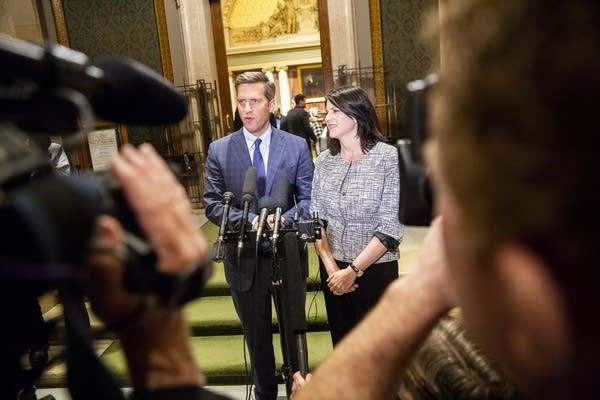Session failures will have consequences for many Minnesotans

Speaker of the House Kurt Daudt, R-Crown, and House Majority Leader Joyce Peppin, R-Rogers, speak to the media after adjourning the legislative session inside the Minnesota State Capitol on Sunday.
Evan Frost | MPR News
Go Deeper.
Create an account or log in to save stories.
Like this?
Thanks for liking this story! We have added it to a list of your favorite stories.


